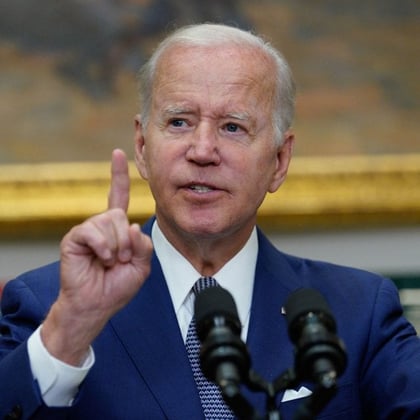Joe Biden issued the first veto of his presidency, rejecting legislation that would thwart a rule allowing retirement portfolio managers to weigh climate change and other environmental, social and governance issues in their investment decisions.
“I just vetoed my first bill. This bill would risk your retirement savings by making it illegal to consider risk factors MAGA House Republicans don’t like,” Biden said in a tweet on Monday. “Your plan manager should be able to protect your hard-earned savings — whether Representative Marjorie Taylor Greene likes it or not,” he added, referring to the Republican lawmaker from Georgia.
I just vetoed my first bill.
This bill would risk your retirement savings by making it illegal to consider risk factors MAGA House Republicans don’t like.
Your plan manager should be able to protect your hard-earned savings — whether Rep. Marjorie Taylor Greene likes it or not. pic.twitter.com/PxuoJBdEee
— President Biden (@POTUS) March 20, 2023
The tweet included a video, where Biden said he “just signed this veto because legislation passed by the Congress would put at risk the retirement savings of individuals across the country. They couldn’t take into consideration investments that would be impacted by climate, impacted by overpaying executives. And that’s why I decided to veto it, it makes sense to veto it.”
The Department of Labor rule was created to undo a Trump-era requirement mandating that workplace retirement plans focus purely on financial gains. So-called ESG factors — short-hand for environment, social and governance — have grown in popularity in the finance sphere.
With Democrats in control of both the House and Senate during his first two years in office, Biden has been spared having to exercise his veto power until now. The move portends more confrontations to come with Republicans, who took control of the House in January.








 March 20, 2023 at 01:47 PM
March 20, 2023 at 01:47 PM












 Copyright © 2024 ALM Global, LLC. All Rights Reserved.
Copyright © 2024 ALM Global, LLC. All Rights Reserved.